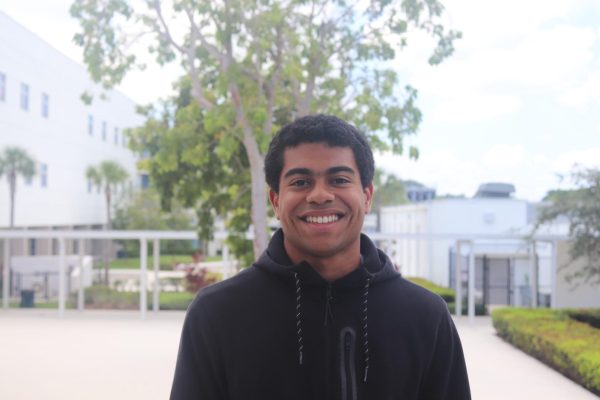Soon, all student and teacher emails that end in @mpshs.net will be deactivated. District officials plan to shut down over 4,500 schools’ Gmail accounts across Miami-Dade County Public Schools to protect student data.
MDCPS introduced school Gmail accounts in the late 2000s to early 2010s, as teachers and administrators found Google Drive useful for storing files on a cloud. Miami Palmetto Senior High Assistant Principal Jesus Tellechea helped lead the effort to expand the school gmail initiative when he was a teacher trainer for MDCPS.
“When I worked at the district, there was no cloud storage. There was nothing in that space and one of the other principles that I worked with at the time, he said, ‘We’re trying this thing called Google Drive and it would be great if we did it region-wide.’ I was like, ‘Oh that’s a great idea.’ So I ran with it; I was like ‘Great, we’re gonna do this, we’re gonna blow it up, and we did it.’ We did it with multiple schools. Palmetto’s, not just the only school that’s affected, but we have at least 10 schools in it, and they’re predominantly high schools,” Tellechea said.
Since 2011, MPSH students, staff and administrators have had access to Gmail accounts with the @mpshs.net ending. Teachers use these emails to store lesson plans in their Google Drive, and students use the accounts to store their schoolwork or to log in to the many websites they use for school. Many teachers and students alike believe they were given short notice regarding the closing of these accounts they rely so heavily upon.
“I think any change can be difficult, especially when there’s an abrupt nature to it, not a lot of forewarning. It can be compounded with frustration when teachers have accumulated years and years of content and curriculum and lesson planning. It creates an anxious period of time for both the teacher and the student. It reminds me a lot of the year that we were sent home because of COVID and we had to scramble very, very quickly to adjust. Not to say that it cannot be done, but it creates a lot of problems and impacts the learning environment and teachers and students’ ability to teach and learn,” AP Seminar teacher Marcos Cohen said.
Tellechea says one of the main reasons for the deactivation of the Gmail accounts comes from a data breach in Nevada. After learning of the breach, MDCPS moved to unite all student resources in one place: the dadeschools.net email.
“There was a data breach in Google in a county in Nevada and the student Google accounts were hacked. Dade County said, ‘We want to consolidate our information into one place,’” Tellechea said. “I think that that was the impetus to it because that was their main concern that this happened in Nevada, and it’s a thought because the thing is that it could just as easily lose tons and tons of data for a person and that loss of data means a lot to teachers because even the teachers that I’ve reached out to that are on it or they are subsequently getting their stuff off of it, they’re like ‘I have 20 years, 10 years worth of stuff that I’ve saved on there in terms of lesson plans and stuff like that that I still use.’”
Following the deactivation of student and teacher Gmail accounts, the district will deactivate Gmail accounts for school activities. Tellechea said he and others are working to make the transition as smooth as possible.
“They’re even trying to see if we can move the actual emails over to [dadeschools.net email] so that if you get an email sent to you via your [@mpshs.net email], it’ll automatically go over to dadeschools. We’re trying, it’s not to say that they’re going to be able to make it work, it’s just that they’re trying to make it work,” Tellechea said.
The end of the @mpshs.net email address points to a larger concern over data security, and how organizations prioritize it — even at the cost of services their members rely on. Tellechea sees the closing of the accounts as lamentable but necessary.
“It’s just sad, it’s been such a long time that we’ve been doing this that it’s just a little sad that you’re like ‘Okay, I guess it is what it is,’” Tellechea said.



